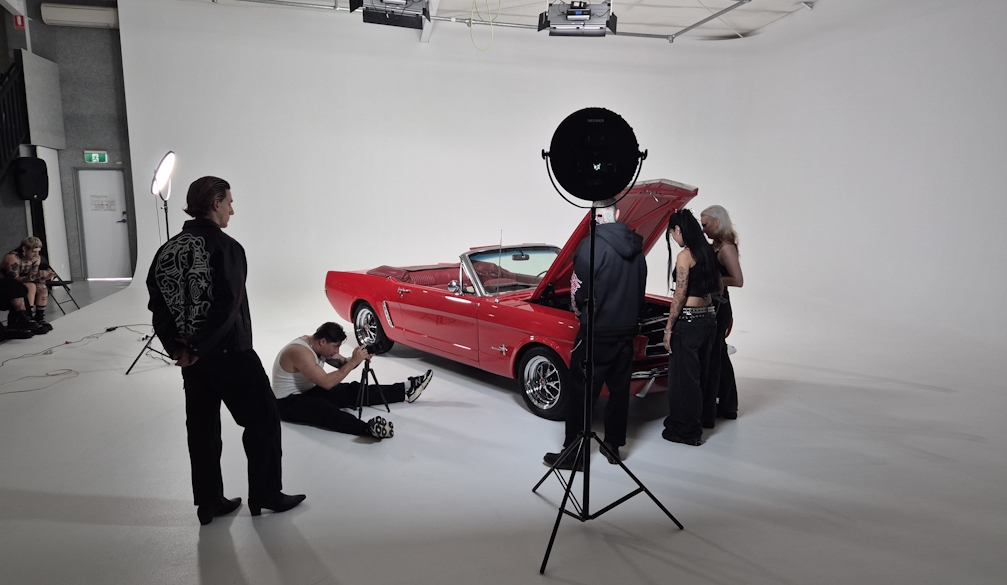The specter of China has edged into US election rhetoric
- Written by Fan Yang Professor of Media and Communication Studies, University of Maryland

Speaking at the Republican National Convention in July 2024, Donald Trump invoked China 14 times. In the course of a 92-minute address, the former president recycled his widely criticized term “China virus” for the COVID-19 pandemic, said China was stealing auto jobs, and touted how his administration had China beat on a variety of fronts.
China also made it into the major addresses at the 2024 Democratic National Convention. On the first night, President Joe Biden said that on coming into office, “the conventional wisdom was that China would inevitably surpass the United States.”
“No one is saying that now,” he added.
Democratic presidential nominee Kamala Harris echoed this sentiment on the final night, claiming that if elected she would ensure that “America, not China, wins the competition for the 21st century.”
As an expert on how China is represented in U.S. media culture and politics, I believe the fact that China is edging into the election rhetoric is of little surprise – nor is the imbalance in emphasis given to the country by the Democratic and Republican tickets, respectively.
A tried and tested election ploy
Since Biden’s exit from the presidential race, the Democratic candidates have seemingly limited their references to China on the campaign trail, in contrast with their Republican counterparts.
Trump and his Republican allies have long mobilized the use of China to position themselves as anti-Communist and to burnish their “America first” credentials. For Trump, especially, it is a tried and tested electoral ploy. In the run-up to the 2016 election, Trump invoked China so frequently that The Huffington Post produced a mashup video of the candidate repeating “China” 234 times.
This has continued into the current election cycle.
Aside from the frequent mentions in the speeches by Trump and others, the 2024 GOP platform emphasizes “Secure Strategic Independence from China” as a key commitment, through limiting trade and investment as well as “countering China” to “return Peace through Strength.” In contrast, other perceived adversaries such as Russia and Iran received no mention in the official Republican platform.
Meanwhile, Project 2025 – the conservative Heritage Foundation’s policy plan often associated with Trump, although his campaign denies the connection – mentions China no fewer than 483 times in a 922-page document. The project’s official website even highlights the goal to “take on China” on the “About” page.
Neither ‘dragon slayer’ nor ‘panda hugger’
It was not, therefore, surprising that Trump-supporting elements of the U.S. media pounced on news that Tim Walz, the governor of Minnesota chosen to be Harris’ running mate, has previously taught in China and traveled there an estimated 30 times since 1989, including on his honeymoon.
Although Walz has said he is “neither a ‘dragon slayer’ nor a ‘panda hugger’” when it came to China, conservative commentators painted Walz as a “Marxist” who would make Communist China “very happy.” Fox News host Jesse Watters even called for Walz to undergo an FBI background check due to his China links.
On Aug. 16, the House Oversight and Accountability Committee chair, Republican James Comer, opened an investigation into Walz’s “longstanding connections” to China.
The Great Walz of China? Hardly
The ties that some Republicans find suspicious include Walz’s running Educational Travel Adventures with his wife, Gwen Walz, from 1994 to 2003. The company they founded helped students from small-town America travel to China to learn about the country’s history and culture. Walz also served on the human rights-monitoring Congressional-Executive Commission on China during his time as a House representative.
While consistently critical of the Chinese government, Walz has also recognized that the relationship between the U.S. and China does not have to be an adversarial one, and there can be “many areas of cooperation.”
Despite his extensive China-related experiences, the Democratic vice presidential nominee has yet to mention China during major campaign speeches – China didn’t make it into his party convention address, unlike the speeches of Harris, Trump and Walz’s rival for vice president, JD Vance.
Walz’s apparent reluctance to highlight his knowledge about China also contrasts with the action of a previous Republican presidential hopeful, Jon Huntsman, who served as an ambassador to China and is fluent in Chinese. During his campaign in 2011, arguably a different time in U.S.-China relations, Huntsman repeatedly demonstrated his ability to speak Chinese and was often praised for doing so.
Harris’ great leap forward, not back
One reason behind the difference in emphasis on China between the two presidential tickets is, I believe, the different framing of the election. To the Democrats, the upcoming vote is about movement – they are projecting the choice between going backward or going forward. Taglines such as Harris’ “we’re not going back” position the United States and its people as marching toward a future of unity, promise and opportunity that, in their view, leaves behind the chaos, division and repression of the past.
In this framing, the role of China as a threat is anchored primarily in the area of high-tech competition; Harris’ mentions of China in her convention speech were in regards to the future on space and artificial intelligence.
By contrast, the Republican campaign is premised more on protecting an imagined Americanism from foreign forces, which is why you hear more from Trump and Vance on the much dramatized “invasion” of immigrants illegally crossing the borders and “bringing” drugs and crime.
The same logic, I would argue, informs the GOP’s frequent invocation of China as a geopolitical and economic threat.
After all, Trump has long attributed a great number of actions to the Chinese government, from calling it a creator of the “Wuhan virus” to blaming it for producing the “hoax” of climate change. In his convention speech, Vance linked China directly to the illegal cross-border drug trade. At a rally in Michigan on Aug. 27, he also accused Harris of using tax dollars to pay “the Chinese Communist Party to build factories on American soil,” omitting the fact that the Republican-led legislature had developed the program.
This characterization of China fits what I called the “racialization” of the Chinese state in my book “Disorienting Politics.” The rhetoric depicts China as a powerful agent that carries out nefarious acts that can only hurt America.
‘Make it all about China’
Over the past two decades, parts of the American media have conflated China’s Communist Party rule with fascism and totalitarianism.
That rhetoric in the U.S. over the “Chinese virus” during the pandemic triggered a spike in reported anti-Asian racist attacks, showing that manufactured fear of a distant place like China can also sow hatred toward people perceived to have come from that place.
In this sense, Walz’s reluctance to invoke China perhaps corresponds to a refusal to oversimplify the complex society of China. “The best way to study about people is to hear them tell what it is like where they live,” said the former social studies teacher back in 1991, while discussing a U.S.-China pen-pal program with a local newspaper.
As the election season unfolds, the specter of China is likely to return even as more urgent geopolitical conflicts continue to dominate the headlines.
After all, even one of Walz’s former students – a self-described “dormant Republican” attempting to defend Walz against Republican attacks on his character – still advised the Trump campaign to focus on policy and “make it about China.”
This article first appeared in The Conversation and is republished with permission
















